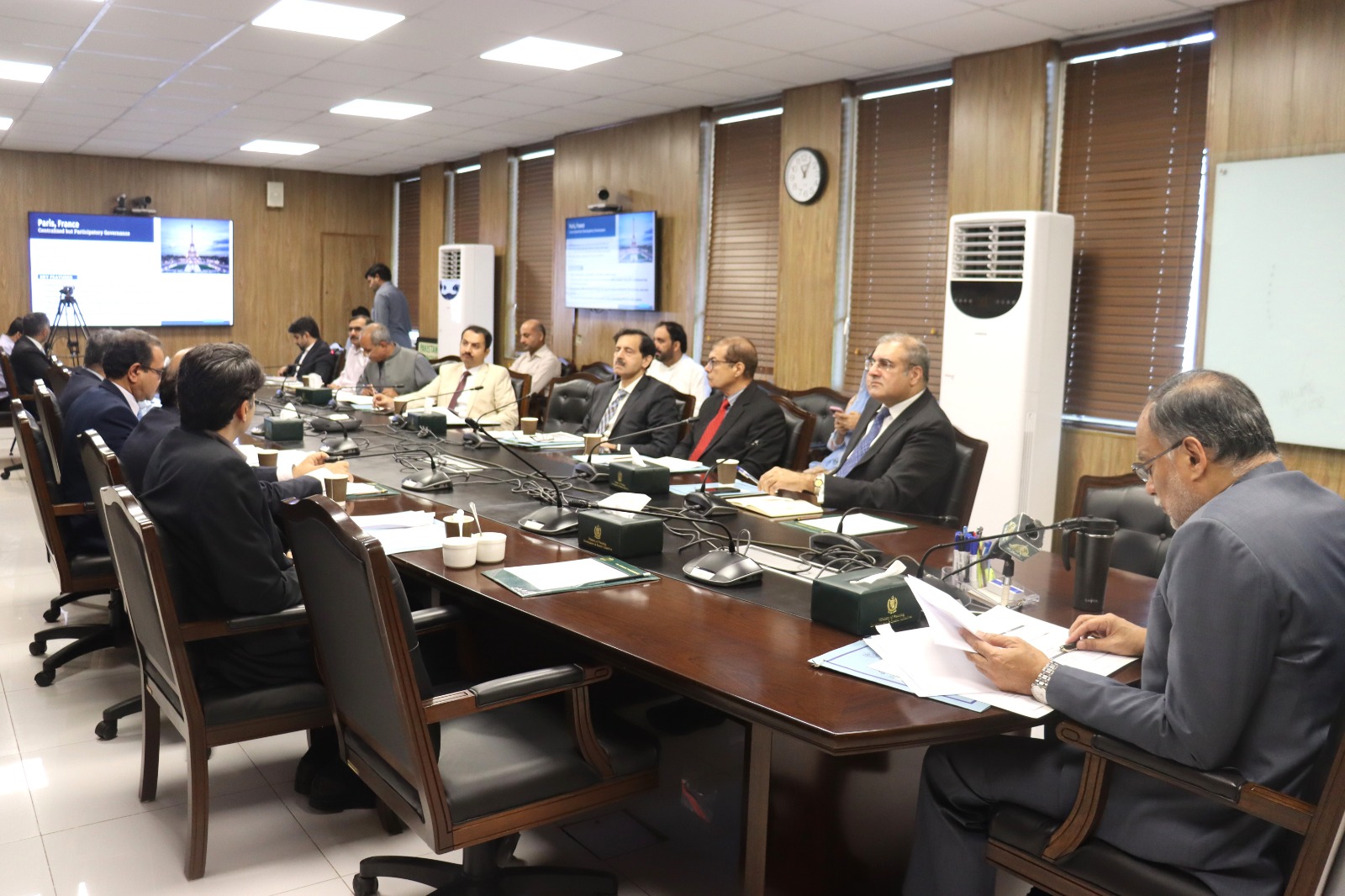19 September 2024
Islamabad: A meeting of the PM Committee on ICT Governance Model was held on Sept 19, 2024, chaired by Federal Minister for Planning, Development, and Special Initiatives, Prof. Ahsan Iqbal. The meeting brought together key officials, including Dr. Malik Mukhtar Ahmad Bharath, Coordinator to the Prime Minister on Health, Mr. Awais Manzur Sumra, Secretary, Ministry of Planning, Secretary of Education, Additional Secretaries from various line ministries, Deputy Commissioner Islamabad, and the Director of the Capital Development Authority (CDA).
The focus of the meeting was to discuss governance models for Islamabad Capital Territory (ICT), with an emphasis on improving administrative and financial autonomy. During the meeting, Chief Governance Mr. Javed Sikandar delivered a presentation outlining governance models adopted by countries such as the USA, Brazil, Australia, Mexico, Nigeria, Malaysia, and India.
In his opening remarks, Planning Minister Prof. Ahsan Iqbal underscored the importance of developing an exemplary governance model for Islamabad Capital Territory. He noted that Islamabad’s manageable size offers an ideal environment to pilot governance reforms that could later be replicated in other regions. “Islamabad’s size is neither too large nor too small, making it a suitable area for implementing innovative governance practices that can serve as a model for other provinces,” the Minister emphasized.
Prof. Ahsan Iqbal highlighted the unique governance challenges faced by ICT due to the absence of a provincial assembly and administrative autonomy. He called on the committee to explore whether Islamabad requires a provincial-like government structure or whether a more robust local government model would be a better alternative.
Furthermore, the Minister expressed concern over the duplication of responsibilities among various entities, such as the CDA, the Ministry of Interior, and line ministries, which leads to inefficiencies in governance. He stressed the need to consolidate administrative authority and ensure professional management in sectors like health and education.
Reflecting on his experiences in provincial settings, Prof. Ahsan Iqbal pointed out the gap between the significant resources allocated to education and health and the management capacity in those sectors. He mentioned that billions of rupees are spent on education and health at the district level, yet the management, does not match the scale of resources invested. He urged the committee to consider developing a model in Islamabad that sets a national standard for excellence in these sectors.
The Minister also emphasized the importance of creating a strong local government system that can address municipal and local issues effectively, noting that centralized governance structures are often unable to resolve local matters. He stressed that local problems are best solved by empowered and efficient local governments.
In conclusion, Prof. Ahsan Iqbal reiterated the committee’s mandate to develop a comprehensive reform package for ICT governance, aimed at creating a more efficient, transparent, and citizen-centered administrative structure. He invited suggestions from all attendees on how best to move forward with these reforms.
The PM Committee on ICT Governance Model has been formed to evaluate international governance models for capital cities and develop a framework for Islamabad Capital Territory (ICT) that provides administrative and financial autonomy similar to provincial governments. The committee will assess the capacity of ICT’s local administration for efficient service delivery in devolved sectors like health and education and draft a transition plan outlining an organizational structure, financial resources, and implementation timelines. Additionally, it will review the legislative framework for ICT’s local government and address any other relevant issues. The Ministry of Interior will support the committee, which will submit its report to the Prime Minister within 30 days.
The meeting marked a critical step towards reimagining the governance of Islamabad and ensuring that the capital city can serve as a model for good governance across Pakistan.



Comments are closed.